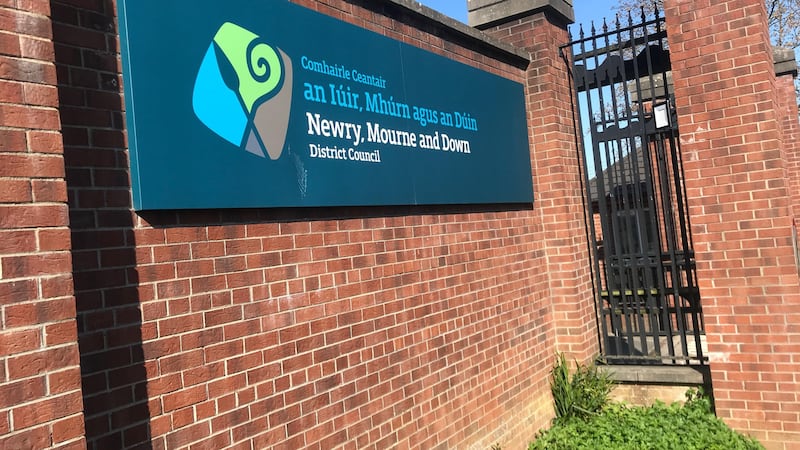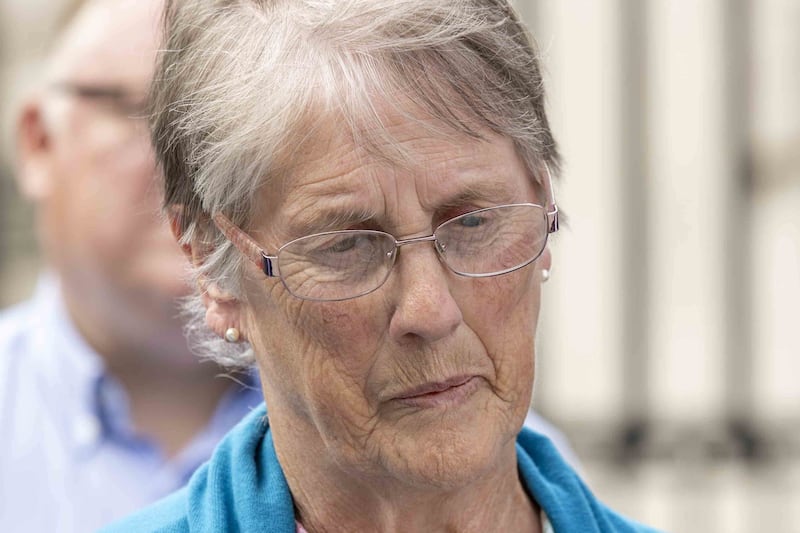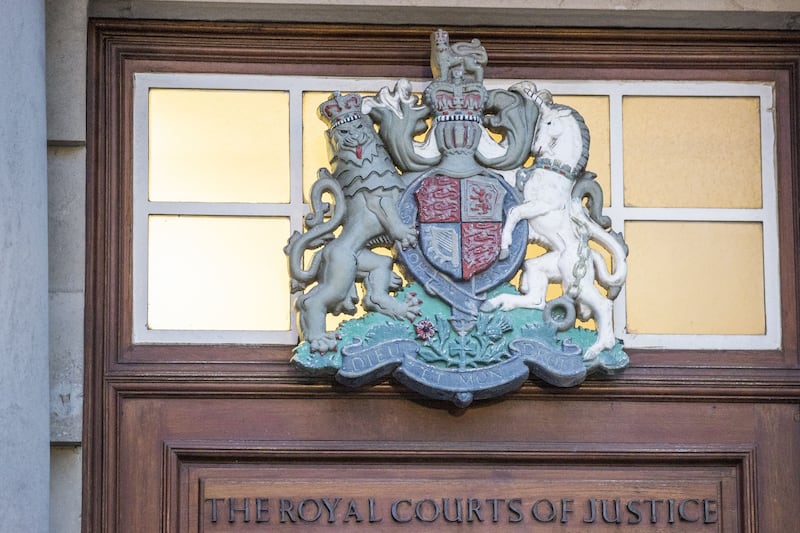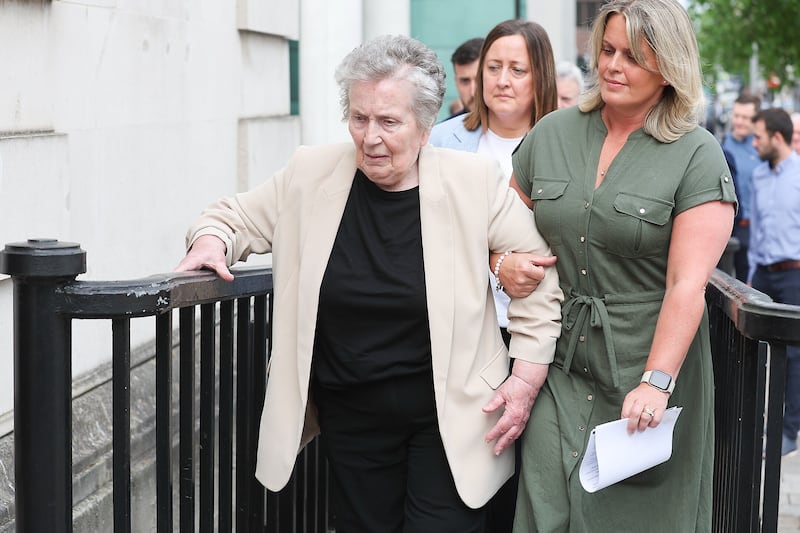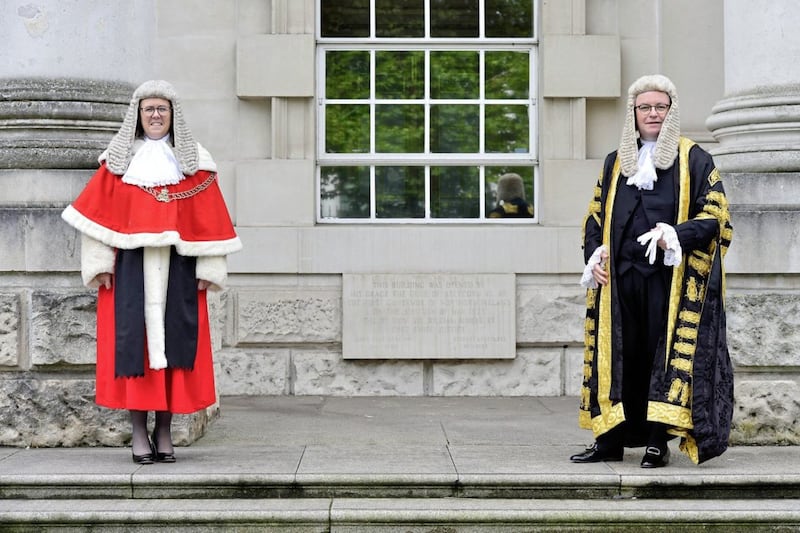FORMER First Minister Arlene Foster unlawfully stopped Stormont Executive discussion of a funding plan aimed at clearing a backlog of legacy inquests, the High Court has ruled.
A judge held the DUP leader erroneously took into account the absence of an overall agreed package to deal with outstanding issues from Northern Ireland's violent past.
Despite rejecting claims of discrimination, Sir Paul Girvan said: "The decision to refuse to put the paper on the agenda was procedurally flawed."
Delivering his verdict on a challenge mounted by the widow of an innocent civilian shot dead along with eight IRA men, he also found that a "systemic delay" in dealing with Troubles-related killings is impacting on her human rights.
Stormont departments and the Secretary of State must now reconsider whether to provide extra funding for hearings into nearly 100 deaths without waiting for any political agreement, the judge directed.
Brigid Hughes took legal action against the British government and the devolved administration for allegedly withholding the necessary financial resources.
Her lawyers also claimed Mrs Foster unlawfully blocked a Department of Justice (DoJ) paper on the legacy inquest issue going before an Executive committee meeting.
Mrs Hughes's husband Anthony died after being unwittingly caught up in the SAS ambush of an IRA unit at Loughgall, Co Armagh in May 1987.
The legal challenge was brought against the Secretary of State, the Stormont Executive and Mrs Foster personally due to her alleged responsibility for the logjam.
More than 50 legacy inquests remain outstanding, with potentially 72 more cases on the Attorney General's desk for consideration.
Each of them could cost more than £1m to run, the court heard.
Although the Stormont House Agreement includes a £150 million package to deal with all legacy issues, the government has said financial resources will not be released until political consensus is reached on dealing with the past.
Northern Ireland's Lord Chief Justice, Sir Declan Morgan, had advanced a plan for having all cases dealt with within five years.
In 2016 a paper was drawn up by the DoJ to bid for funds based on Sir Declan's blueprint.
Lawyers for Mrs Hughes alleged Mrs Foster stopped it from being discussed by her Executive colleagues for political reasons.
It was claimed that she would not allow a process which would "rewrite the past" because most of the inquests concerned state killings.
However, Attorney General John Larkin QC, representing Mrs Foster, insisted she behaved impeccably in preventing an "undercooked" paper going forward at that stage.
She had been focused on balancing the limited £150m budget for dealing with all outstanding legacy issues, the court heard.
Counsel for the Northern Ireland Office also claimed that financial package could have been drained by the inquest funding bid alone.
Officials were said to be concerned the DoJ paper only covered 16 cases at a cost of nearly £17m, lacked a proper business model, reform proposals may have left nothing for other planned new bodies.
But Sir Paul held there was a legal flaw in Mrs Foster's decision not to permit the paper to go before the Executive Committee.
"The former First Minister was in error in concluding that it was legally proper to defer consideration of the question of seeking additional funding to deal with the systemic delays in relation to the legacy inquest until an overall package was agreed in respect of the outstanding legacy issues," he said.
"She was in error in concluding that it was legally proper to defer consideration of the funding issue because in the absence of an overall package the provision of additional funds to deal with the systemic delays in the legacy inquests would favour victims who were not innocent as against innocent victims of the Troubles."
Turning to the discrimination claim made against her, the judge pointed to her view that legacy inquests would produce an imbalanced outcome between different categories of victims.
If anything, he said, her decision favoured members of the security forces involved in the killings.
"This is not discrimination on the grounds of the religious or political opinion of the next of kin even though a preponderance of them may have come from one section of the community," he ruled.
"The case for discrimination has thus not been made out."
Dealing with the wider challenge against devolved bodies, Sir Paul Girvan recognised unlimited resources cannot be provided to the coronial system.
But he said at times the arguments put forward on behalf of the respondents sounded like an attempt to escape individual liability, with the fault attributable to some other public body.
It was stressed how the current political impasse in Northern Ireland created a vacuum at the heart of the devolved system of government.
Even though the Court cannot direct Government departments how to spend public funds, Sir Paul said he was minded to issue a declaration compelling the respondents to reconsider their respective duties on provision of additional funding to the Coroners Service for legacy inquests.

